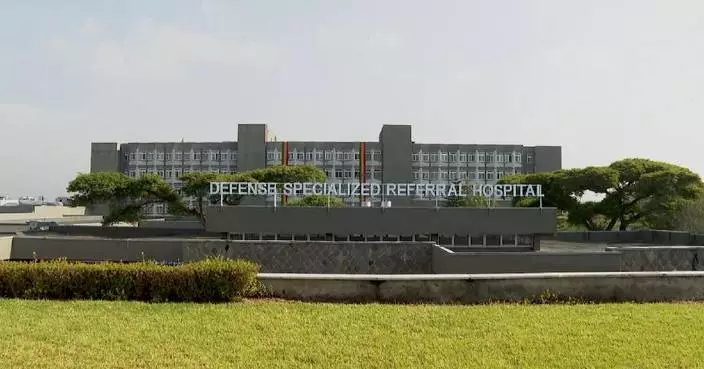Some 670,000 passenger trips from the Chinese mainland were made to travel in the Hong Kong Administrative Region (HKSAR ) during the first four days of the five-day May Day holiday, which began on Wednesday this year, an official with the HKSAR government said on Sunday.
During an interview with Commercial Radio Hong Kong, a local radio station, Kevin Yeung Yun-hung, secretary of Culture, Sports and Tourism of the HKSAR government, said the final figures of the May Day holiday were expected to be close to the initial estimate of 800,000 passenger trips from the mainland.
He also said that the tourists from the mainland would be projected to generate an extra of more than 2 billion Hong Kong dollars (about 255.9 million U.S. dollars) in HK's income from their consumption in the city.

HK greets 670,000 mainland visitors in first 4 days of May Day holiday: official
South Korea' seven million individually-owned businesses are wrestling with survival amid the throes of high inflation and souring costs, which are mainly engaged in catering and retail industries, representing over 20 percent of the country's total employed population.
According to South Korea's Real Estate Research Institute, the store vacancy rate hit a record high of 13.7 percent across the country in the first quarter of this year. Even capital city Seoul's glitzy districts such as Gangnam and Itaewon are filled with empty restaurants and shops.
Ryu Deok-hyun has been running a restaurant for six years in Seoul and won regular customers largely thanks to affordable food prices.
However, the 60-year-old businessman has recent felt the pinch of high inflation. This March, the price of cabbage, an important ingredients in Korean dishes, hiked by 36 percent compared to one year ago. Similarly, chili powder, radish, onion and pork also reported year-on-year price increases between 10 percent and 30 percent, and labor costs, rents and water and electricity bills are also on the rise.
Faced with meager profits, Ryu is still hesitant to raise prices on menu items.
"I'm worried that increasing food prices will lessen customers dining here. But if I don't raise prices, it's hardly profitable. It's really nerve-wracking for me. As of now, I am living on loans. But now the loan interest rate has risen from two percent to six percent, coupled with the huge increase in fixed expenditures, I find it hard to survive it," he said.
Unlike Ryu, many restaurant owners choose to frequently increase menu prices in response to the ever-rising costs, which has resulted in customer decline and business closure. As of now, the cost of dining out has been higher than the overall price increase rate for 35 consecutive months in South Korea, and the closing rate of restaurant businesses stood at 10 percent last year, the highest since 2005.
Most of the small businesses sustaining operation are heavily debt-ridden. Data showed that nearly 60 percent of individually-owned businesses rely on loans to maintain operations, and at the end of this March, the total debt of South Korea's individually-owned businesses came in about 1,112 trillion Korean won (about 821.03 million U.S. dollars), an increase of 51 percent from 2019.
As international oil prices remain at high levels, the Korean won continues to weaken, the trend of rising prices is set to persist and the country's central bank -- Bank of Korea continues to maintain high benchmark interest rates, individually-owned businesses are burdened with loan repayments and are likely to stay financially distressed in the short term.
Industry insiders called for increased efforts to support the small businesses.
"South Korea should flexibly adjust the rate of increase in the minimum hourly wage, and relevant departments should introduce measures to reduce or exempt rental fees of individually-owned businesses," said Cha Nam-soo, the head of the support department at the Korea Federation of Small Businesses and Workers.

S Korean small businesses wrestle with survival in throes of high inflation










